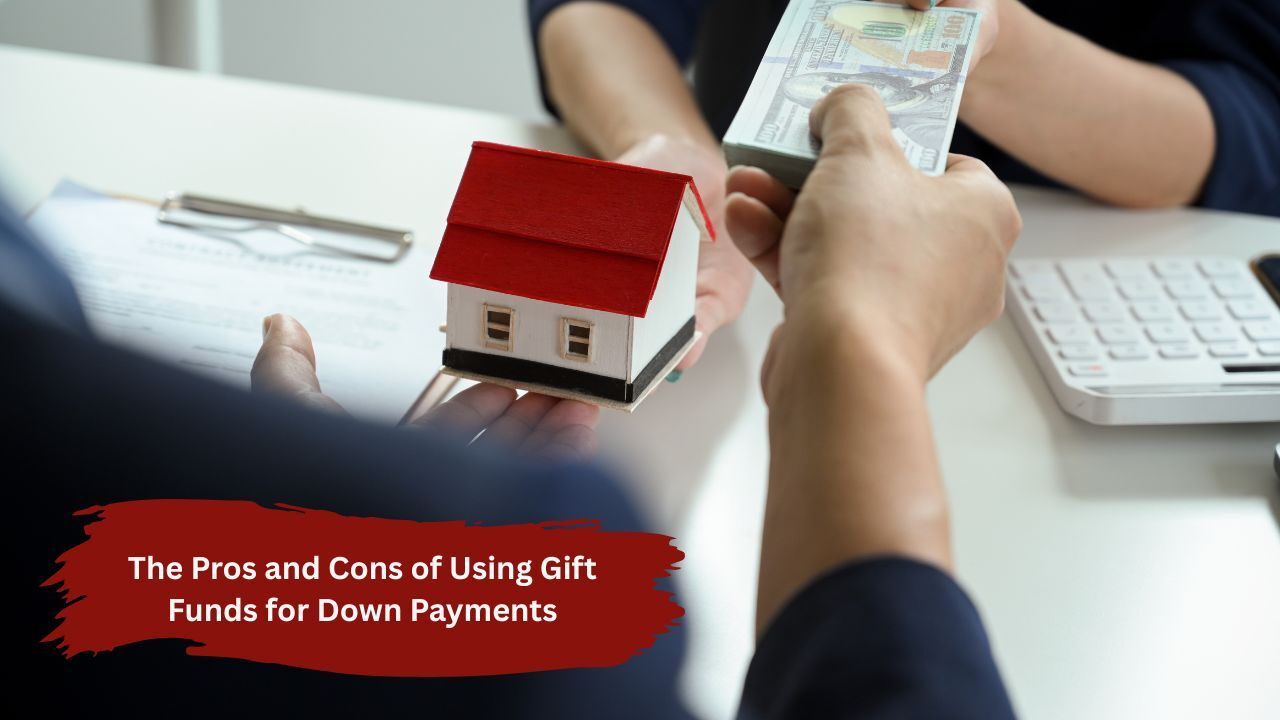The Pros and Cons of Using Gift Funds for Down Payments
 For many homebuyers, especially first-time buyers, saving for a down payment can be one of the biggest hurdles to homeownership. Fortunately, gift funds, money given by family members, close relative, or even an employer can help bridge the financial gap. While using gift funds can make homeownership more attainable, there are important benefits and potential drawbacks to consider before relying on them.
For many homebuyers, especially first-time buyers, saving for a down payment can be one of the biggest hurdles to homeownership. Fortunately, gift funds, money given by family members, close relative, or even an employer can help bridge the financial gap. While using gift funds can make homeownership more attainable, there are important benefits and potential drawbacks to consider before relying on them.
Pros of Using Gift Funds for a Down Payment
Easier Path to Homeownership
One of the biggest advantages of using gift funds is that they allow buyers to purchase a home sooner rather than waiting years to save enough money. This is particularly beneficial in competitive housing markets where home prices are steadily rising.
Lower Loan Costs
A larger down payment, thanks to gift funds, can help buyers qualify for better mortgage terms, including a lower interest rate. Additionally, if the gift enables the buyer to put down 20 percent or more, they can avoid private mortgage insurance (PMI), which can save hundreds of dollars per month.
More Financial Flexibility
By using gifted funds, buyers can preserve their own savings for other home-related expenses, such as closing costs, moving expenses, and future maintenance. This financial cushion can make homeownership less stressful in the long run.
Less Loan Debt
With a larger down payment, buyers may borrow less, resulting in lower monthly mortgage payments. This reduces overall interest costs over the life of the loan, making homeownership more affordable.
Cons of Using Gift Funds for a Down Payment
Strict Lender Guidelines
Not all mortgage programs allow gift funds, and those that do often have strict rules about how they can be used. Lenders typically require a gift letter from the donor stating that the funds are a true gift not a loan that must be repaid. In some cases, lenders may also require bank statements from the donor to verify the source of the funds.
Potential Tax Implications
While buyers do not have to pay taxes on gift funds, the donor may face tax consequences. In 2024, the IRS allows individuals to gift up to $18,000 per person per year without triggering a gift tax. If the gift exceeds this amount, the donor may need to file a gift tax return and use part of their lifetime exemption.
Limited Control Over Timing
If the donor experiences financial hardship or delays in transferring the funds, it could hold up the homebuying process. Buyers should ensure that gift funds are available before making an offer to avoid last-minute issues.
May Impact Mortgage Approval
Some loan programs, particularly FHA and VA loans, have stricter rules regarding gift funds. Buyers may need to contribute a portion of their own money, especially if they have a lower credit score. Lenders may also scrutinize large deposits in the buyer s account, requiring detailed documentation.
Gift funds can be a powerful tool to help buyers achieve homeownership faster and more affordably. However, it is crucial to understand lender requirements, tax implications, and potential challenges before relying on them. Working with a loan originator can help navigate the process smoothly, ensuring compliance with lender guidelines and avoiding unexpected hurdles.
If you are considering using gift funds for your down payment, consult with a mortgage professional to explore your options and determine the best path toward homeownership.

 In these days of low interest rates, it can be a great idea to get into the real estate market and invest in a home. However, if you don’t have the funds saved up to buy a home outright, it may seem like more of a burden than it’s worth. The good news is that you might qualify for a mortgage loan, which tends to come with more favorable terms than a traditional bank loan. Here are three reasons why a mortgage might just be the best money you ever borrow.
In these days of low interest rates, it can be a great idea to get into the real estate market and invest in a home. However, if you don’t have the funds saved up to buy a home outright, it may seem like more of a burden than it’s worth. The good news is that you might qualify for a mortgage loan, which tends to come with more favorable terms than a traditional bank loan. Here are three reasons why a mortgage might just be the best money you ever borrow. Are you thinking of buying a new home this spring or summer? If so, you’re not alone. Many thousands of individuals and families alike will become homeowners this year. Whether you’re a first-time buyer or a seasoned veteran of the housing market, you probably know there are significant choices to make. One of the big decisions you will have to ponder is how much you want to invest in your down payment.
Are you thinking of buying a new home this spring or summer? If so, you’re not alone. Many thousands of individuals and families alike will become homeowners this year. Whether you’re a first-time buyer or a seasoned veteran of the housing market, you probably know there are significant choices to make. One of the big decisions you will have to ponder is how much you want to invest in your down payment.